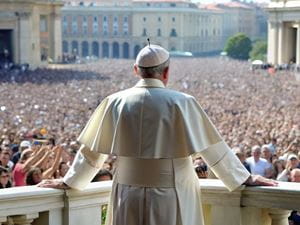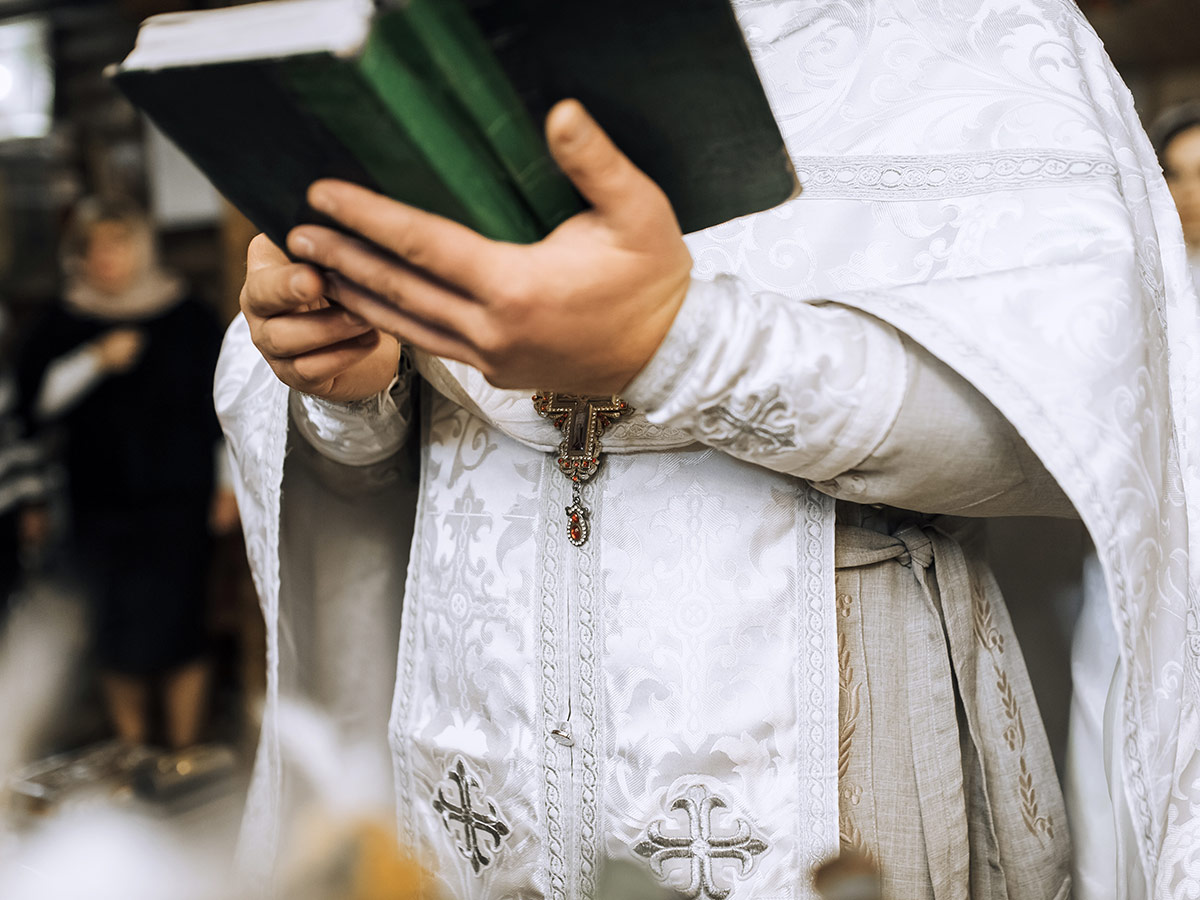
Catholics and Protestants disagree about whether the Pope is the Vicar of Christ. Catholics are adamant that the Pope is Christ's vicar, which means he is Christ's representative on earth. Protestants are equally certain the Pope is not the Lord's earthly representative.
Each faith tradition uses scripture to support its beliefs.
Catholic Beliefs About the Vicar of Christ
Christ is the head of the Church, and Catholics believe the "Vicar of Christ" – i.e., the Pope – represents Him on earth. The Catholic Church has recognized the Pope in this way since the 8th century. Prior to that time, popes held the title "Vicar of St. Peter."
The former designation signifies "supreme and universal primacy, both of honor and jurisdiction, over the Church of Christ." In this case, "Church of Christ" refers to the Catholic Church rather than the denomination of the same name.
Catholics find support for their beliefs in the scripture, where Christ tells His disciple Peter, "Feed my lambs… Feed my sheep" (John 21:15-17). They interpret this passage to mean Christ guaranteed the future of the Church he founded and placed it under the direction of a universal shepherd, namely Peter.
Christ also called Peter the "rock" on which He built his Church (Matthew 16:18) and gave Peter the "keys to the kingdom" (Matthew 16:19). Catholics interpret the word "keys" to mean papal authority, and they say Peter was the first pope.
"The idea is that the Pope carries out Christ's mission and teachings on earth, leading and guiding the Church in accordance with Christ's will. This, of course, does not mean that the Pope is sinless or that he is infallible in all matters," the Catholic Church explains.
"Vicar of Christ" Title in Early Church
Catholics believe the Pope's primacy became well-established in the early days of the Church. Following Peter's death, the pontiff was called the "Vicar of Peter" for several centuries, and early Christians believed the apostle ruled the Church from heaven. During the reign of Pope Innocent III (1198-1216), the Pope's title was changed to "Vicar of Christ."
Innocent III used the Vicar of Christ title "to emphasize the supreme authority of the Pope over the Church Militant," which refers to Christians who fight sin, the devil and the rulers of darkness or who have a militant attitude. This authority allowed the Pope—and the Pope alone—to remove bishops from office.
Responsibilities of Today's Vicar of Christ
As the Vicar of Christ, popes have been interpreting, defending and teaching for more than 800 years. They also provide spiritual care to the Church's members around the world. Catholics say this responsibility parallels Christ's role as the Good Shepherd who cares for his flock. Additionally, popes work to maintain church unity and perform certain priestly ceremonies that only they can perform.
Yet, the Pope is limited in some respects. He cannot add or subtract from the seven sacraments Christ established, change the words of the consecration or "teach errors." The seven sacraments are baptism, confirmation, the Eucharist, penance, anointing the sick, holy orders and marriage. (Consecration refers to the permanent dedication of a person or object to God's service. The Eucharist is a service that commemorates the Last Supper.)
Catholics also believe that the Church must be "a visible institution on earth," and as such, it must have a leader. "And since Christ is the true Head of the Church, the head of the Church's visible institutions here on earth must merely be His Vicar.
"Hence, we need not be alarmed when the Pope is called the Vicar of Christ. The title in no way asserts equality with Christ. Just as the ruler would appoint someone else to govern in his stead if he were absent for some time, so too did Christ establish a visible head for His Church on earth…."Protestant Beliefs About the Vicar of Christ
Protestants and Catholics view the "Vicar of Christ" very differently. Protestants do not accept the Pope's leadership and do not have a single earthly leader. As a result, no Protestant holds the Vicar of Christ title. There is no overall "Protestant Church," and no single leader speaks for Protestants.
"Calling the pope the 'Vicar of Christ' implies that he has the same power and authority that Christ had over the Church," according to Got Questions Ministries, a non-profit Christian organization that provides information on Protestants' beliefs. "The title is derived from Jesus' words in John 21:16-17 to Peter, 'Feed my lambs…. Take care of my sheep.'"
The ministry points to Hebrews 7:14-19 as support for Protestant beliefs about Jesus' superiority over earthly priests. The passage says Christ is "our high priest forever" because he is "holy, blameless, pure, set apart from sinners, (and) exalted above the heavens" (Hebrews 7:26).
Protestants argue that Jesus is their mediator with God, and a human mediator is unnecessary. "There is no biblical foundation for claiming to be a representative of Christ on earth," Got Questions Ministries says. "No man could do what Christ has done, or what Christ is now doing on behalf of humankind."
The Protestant organization also says that the word "vicar" implies that the bearer of the title has the same "jurisdictional power" as the official he represents. In this case, the official is Jesus Christ. It also points out that Christ clearly says he will build his Church (Matthew 16:18), and he does not delegate this power.
Christ says there will be a "vicar" to replace the Lord's physical presence on earth, according to Protestants. But the so-called vicar will be the Holy Spirit rather than an earthly priest, high priest, bishop or Pope.
The New Testament says God sent the Holy Spirit in Jesus Christ's name to teach us "all things." The Holy Spirit will remind us of everything Christ has taught us, serve as our counselor and teacher, live within us, and guide us into all truth.
Protestants argue that the Catholic Church's need for a Vicar of Christ is a rejection of the sufficiency and supremacy of Christ's priesthood. In establishing the vicar role, Catholics grant the pope responsibilities that should belong to the Holy Spirit, according to Protestants.
"It is therefore blasphemy to ascribe to the pope the title of 'Vicar of Christ,'" Got Questions Ministries insists.
The debate over whether the Pope is the Vicar of Christ demonstrates the deep theological divide between Catholics and Protestants. Catholics firmly believe that the Pope, as the successor of Peter, serves as Christ's representative on earth, guiding the Church in faith and doctrine.
Protestants, on the other hand, reject the idea of a single earthly leader holding such authority, asserting that Christ alone is the head of the Church and that the Holy Spirit, not a human figure, serves as His vicar.
While both perspectives rely on biblical interpretation to support their claims, the discussion ultimately reflects differing views on church authority and spiritual leadership.

